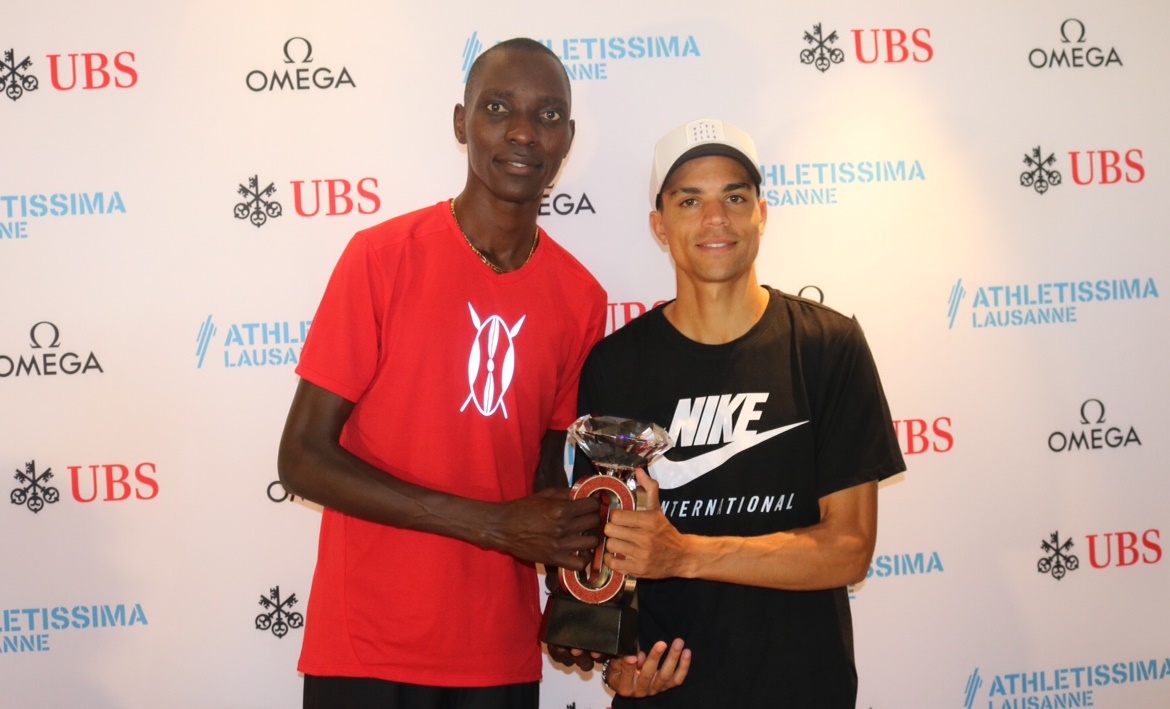A column by Len Johnson
Asbel Kiprop decides not to continue his quest to prove his innocence of an alleged doping infraction and suddenly all’s well in the war against doping.
Except, of course, it really isn’t, the case exposing worrying flaws in the system and, publicly at least, glossing over the inadequacies in the testing process.
Let’s start with the obvious. Having returned a positive test, and seen the formality of the test of the B-sample confirming the result found in the A-sample, Kiprop always faced a monumental task in contesting the adverse finding. Under the system of strict athlete liability, a positive test is terribly hard to explain away. As it should be.
Kiprop was tested last November and notified of the finding that EPO had been detected in his A-sample early in February this year. A few days later, the B-sample also returned a positive result.
Then came Kiprop’s sensational allegations: he had been notified in advance that he would be subject to an out-of-competition test; the tester had discussed with him the possibility that he could mitigate penalty by becoming an anti-doping ambassador for the IAAF; the tester had asked him for money for an unspecified purpose; while Kiprop left the room to search for cash elsewhere in the house his sample was left unsealed and unsupervised; and, finally, he transferred the money into the tester’s account using a phone app and retained a receipt.
The Athletics Integrity Unit admitted the advance notification, describing the breach as “extremely disappointing”, which is certainly not under-stating its seriousness. The AIU also acknowledged that it was a matter for a Doping Tribunal to decide whether this constituted sufficient grounds to invalidate the test, but only after arguing that it did not (emphasis mine).
The AIU contended that the breach of testing standards could only be held to invalidate an adverse analytical finding if it could be shown the breach could reasonably have caused the positive finding. And as it could not have, the result stood (but it’s up to the Tribunal, of course).
Now Kiprop has decided not to continue the fight, saying in a Facebook post that he does not have the resources to keep going. Even in running up the white flag, he has raised another allegation that is disturbing, if true.
Kiprop’s public commentary has been a little like some of his more bizarre race tactics, i.e. all over the place. A little bit of “why the heck is he saying/doing that” mixed with some substantial arguments.
To me, the most worrying point Kiprop raises remains the one allegation which the AIU does not, indeed cannot, refute: that he was given advance notice of an out-of-competition test. Without expert knowledge, this seems about the most serious breach of test protocol possible. The very nature of an out-of-competition test is that it is supposed to be random and unannounced.
Missing three random tests is regarded as an adverse finding. Olympic hurdles champion Brianna Rollins is just one high-profile athlete to have fallen foul of that ruling, missing last year’s world championships serving a one-year ban for missing three tests. Advance warning of an OOC test gives athletes who have not missed any tests previously a chance to be ‘elsewhere’ when the tester calls.
We know that under the absolute liability rule in the anti-doping code, a positive test trumps pretty well any defence. If an athlete is worried they may test positive, a missed test offers an easy way out.
For that reason alone, it would have been instructive on all sides to see Kiprop carry his fight through to a conclusion. Criminal law has the concept of inadmissible evidence when investigative procedures are seriously breached, for example by an illegal communications intercept. It would be interesting to see whether a doping panel or, in the last resort, the Court of Arbitration for Sport, might agree the same stringency is reasonable in doping cases. We await, perhaps, an athlete with deeper pockets.
Kiprop has had a lucrative athletics career with three world championship gold medals and an Olympic gold medal, along with numerous wins in Diamond League races. It is impossible to gauge the sincerity of his claim that he lacks the resources to fight his case further, but if cost is a significant factor for Kiprop, it must represent an impassable barrier to most other athletes.
As I observed when writing about this case some months back, there are no good outcomes here. Either the best male 1500 athlete of the past 10 years has doped, or the testing protocol, in Kenya at least, is not fit for purpose.
You can now add that the cost of fighting a doping ban becomes a factor for pretty much any athlete in the world, especially so when absolute athlete liability means the best chance of a lighter penalty is to ‘roll over’, accept the finding and negotiate a more favourable outcome.
Absolute liability imposes a heavy burden on the athlete. The flip side of the coin is that athletes should be able to rely on the protocols being followed precisely and that the advice they receive at all stages of the process is both accurate and reliable. I’m not entirely confident that is the case at the moment, from high-profile cases like Kiprop’s all the way down to the bottom of the athlete testing pool.
End
https://www.youtube.com/watch?v=2g5YGqNhJT8
Ad: Hydroroller: The ultimate sport drink bottle https://hydroroller.com/



